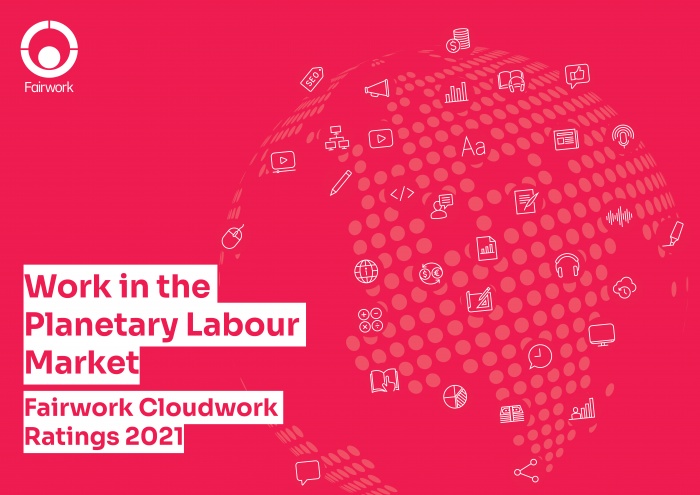Work in the Planetary Labour Market: Fairwork Cloudwork Ratings 2021


Remote working has become rapidly normalised as a result of the COVID-19 pandemic. This trend has been aided and accompanied by explosive growth in the online gig economy. With this growth has come new opportunities for workers from all over the world to participate in a planetary scale labour market.
This report presents the first Fairwork ratings for companies mediating remote work in the global gig economy, or cloudwork platforms. Drawing on desk research, dialogue with platform managers, and a survey of 792 workers in 75 countries, we have given 17 platforms a score out of 10 based on their fairness towards workers. The scores are based on five principles and ten thresholds of fair cloudwork, developed by the Fairwork project in consultation with platforms, workers, researchers, and other stakeholders.
Our ratings show that most cloudwork platforms are not meeting minimum standards of fair pay, fair conditions, fair contracts, fair management, and fair representation. However, some platforms have chosen to incorporate standards of fairness into their design and operations—including as a result of engagement with Fairwork researchers. This shows that platforms can choose to address harms and injustices in the global gig economy.
The Executive Summary is now available in German and Portuguese. Soon to be available in Spanish.
Read report in: